The last time I went to Tres, in Delhi’s Lodhi Colony Market, I was startled by how good the food was. I’ve known the chef, Julia Carmen Desa, from the early days when she worked at the Italian restaurant at the Taj Aguada in Goa and even then, she was regarded as an exceptional talent. But this version of Tres is a lot better than the old one (down the road) and it was astonishing to see how much Julia had upped her game.
The following week I was staying at The Leela Mumbai and went alone for a late dinner to Le Cirque Signature, a wonderful restaurant tucked away in a horrible location that has been the graveyard of many other restaurants: Fiorella, Stella etc. (I always joke that this is where good Italian restaurants go to die).
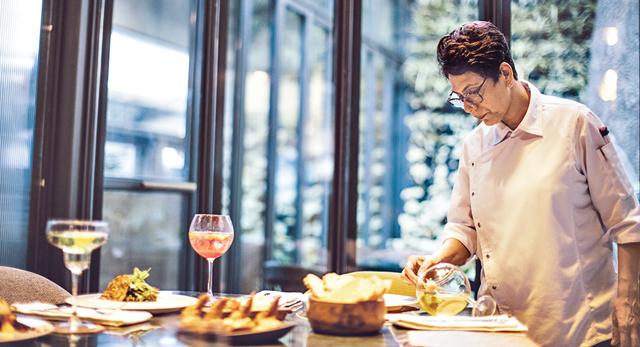
The Indian Le Cirques are collaborations between the Leela group and the owners of the old-fashioned New York original. For the most part, they use expatriate chefs, often from the global Le Cirque network. But just occasionally, they fall back on Indian chefs (such as Prateek Sadhu who was a good outlet chef in Bengaluru), many of whom are very talented.
At present, the Mumbai Le Cirque is between expat chefs so the kitchen is in the hands of Prasad Jagushte. I have written about him before (in The Taste, the sister column to Rude Food) and when I went this time too, the food was outstanding.
As you may have read last week, I then went to Bengaluru and had amazing European/American food at The Smoke Co. in Koramangala followed by Manu Chandra’s genius take on local ingredients using French techniques.
All of this reinforced a view that has been taking shape in my mind over the last few months: the best European food in our country is not cooked by expat chefs. It is cooked by Indians.
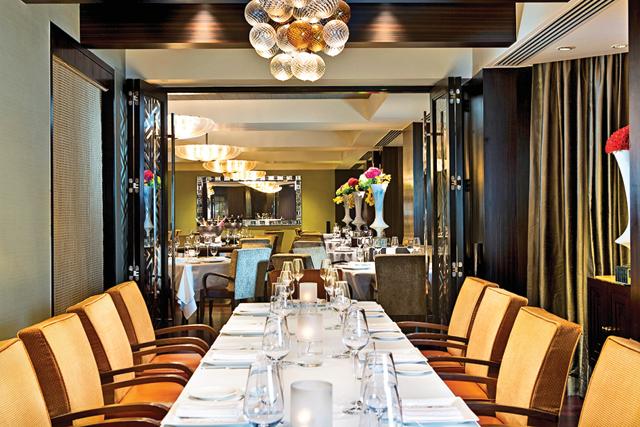
I mean no disrespect to expat chefs when I say that. We have (and have had) terrific expat chefs in India. The Delhi Le Cirque has always had very good chefs. Young Christiaan Stoop at the Delhi Oberoi’s 360 is a chef to watch. Alex Sanchez, the ex chef of The Table, changed how South Mumbai eats. The current chef at Mumbai’s Vetro, Francesco Francavilla, is the best that restaurant has seen. I am sure there are many others who are just as good. And at large hotels, expatriate executive chefs often bring a depth of knowledge that locals may not have. At the Andaz in Delhi, Alex Moser is not only an outstanding and adventurous executive chef, he is also a great cook.
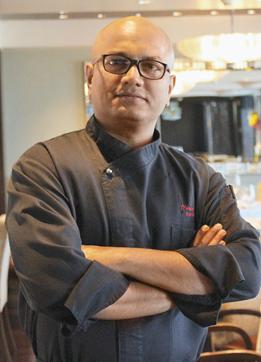
But the truth is that when it comes to European food, we have less and less to learn from expats. (Except in bakery, where Indian chefs are traditionally weak.) The world has changed so much so quickly that Indian chefs now have advantages that previous generations never had.
They can train in sophisticated kitchens using the most modern devices. They are no longer intimidated by fancy ingredients: at Rajvilas in Jaipur, Jaydeep Patil cooked me a magnificent multi-course black truffle dinner that was on par with anything an expat chef could have done. (And unlike any expat chef, Jaydeep followed this up by cooking an even more amazing dinner based on rare recipes from Jaipur’s Muslim quarter, the following night.)
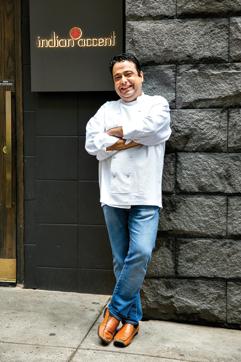
It is also a question of access to information. I am not always a fan of chefs who take their cues from YouTube (they know how everything should look but not how it should taste; good for Instagram, bad for dinner) but equally, there is no denying that the mystique of Michelin-starred restaurants abroad has been punctured by the information revolution. You can’t brag to an Indian chef about a dish you had at say, Per Se in New York or Amber in Hong Kong. He will go on the net, find out exactly what it is and will not be intimidated by the guest’s greater experience.
It helps also that more and more Indian chefs are travelling abroad. Many are saving up to eat at the world’s great restaurants. Cheapskate Indian hotel chains and restaurateurs are rarely generous enough to give chefs the global experience they long for but dedicated chefs manage anyway.
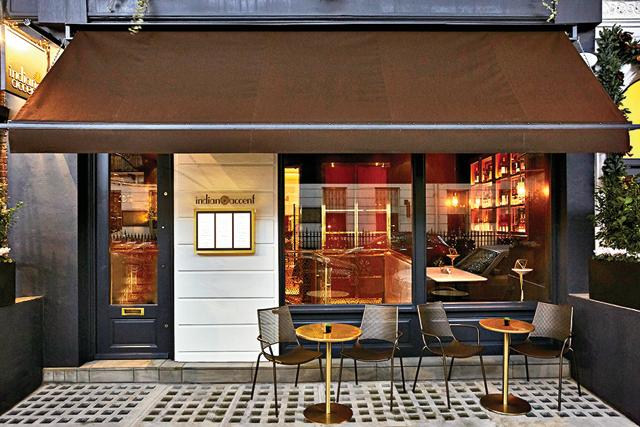
I don’t think Manish Mehrotra would be what he is today if Rohit Khattar had not encouraged him to eat at every great restaurant in UK. When I went to Mugaritz, I found Saurabh Udinia of Masala Library eating at the next table and asking if he could see the kitchen.
Does this mean that Indian chefs, as a whole, are better at European/ American food than natives of those countries? No, of course not. But it does mean that they are better than many of the Western chefs who choose to leave their own countries and seek employment in some faraway Sheraton or Hilton.
The more I thought about it, the less controversial or surprising my view seemed. Look at the foreign chains operating in India. At Marriott, there is a steady move away from expats to locals. At Hyatt, the world’s best F&B chain, Indian chefs are more visible than ever before. At Mumbai’s Four Seasons, Anupam Gulati is doing a far better job than many of his expat predecessors.
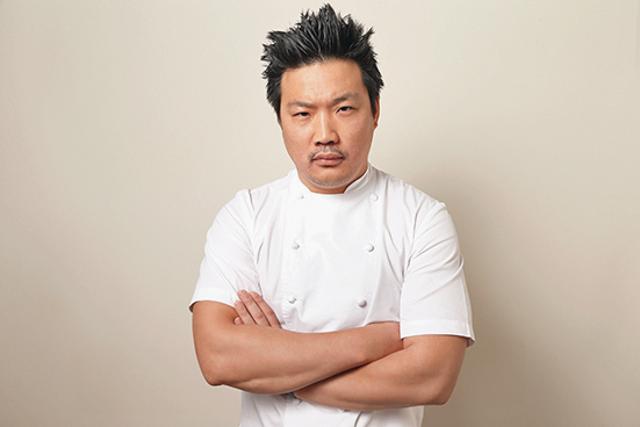
Even Westerners seem to agree. Delhi is full of Italian restaurants. But when the Italian Ambassador needs a chef to cater his dinner parties, he calls Ritu Dalmia. Ritu also runs the café at the Italian Centre in Delhi, a sort-of-hangout place for Italians and lovers of Italian culture.
This does, of course, lead to the obvious counter-questions. One: is this true of all cuisines?
I’d like to be able to say yes but I haven’t (so far at least) found a single Indian chef who can turn out Japanese food to a high standard. It should not be so. The global revolution in Japanese food has been powered by non-Japanese chefs. Sushi bars all over the world are run by Filipino chefs. Modern Japanese food of the Nobu variety is rarely cooked by Japanese. Mark Edwards, one of the most senior chefs in the Nobu empire who opened Nobu London 20 years ago, is a Brit. And yet, he creates modern Japanese dishes that are copied all over the world.
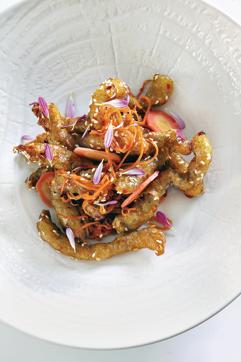
Nor do Indians have much success with Chinese food. Ask me to name a world-class Chinese restaurant in India where the chef is Indian and I will come up blank. I don’t know why this should be so. Chinese food is like any other cuisine. You should be able to learn it.
Perhaps it is because Chinese, more than any other cuisine, depends less on recipes and more on the chef’s instinct for cooking times. Five seconds extra in the wok can ruin a dish. Perhaps that is not part of our Indian genetic make up. I always think of Andrew Wong, the Michelin- starred London chef (he also runs Baoshuan in Delhi) who has an Oxbridge science degree but who decided, post-University, that he would become a chef. He taught himself to cook to an amazingly high standard. So why can’t we Indians learn to cook Chinese food?
Genetics, perhaps. Andrew’s parents were restaurateurs. So perhaps it was in his blood.
And the final question. If Indians can cook Western food, then should we accept that Westerners can also cook Indian food?
I have no problem with that though some Indian chefs I know are foolishly outraged by the idea.
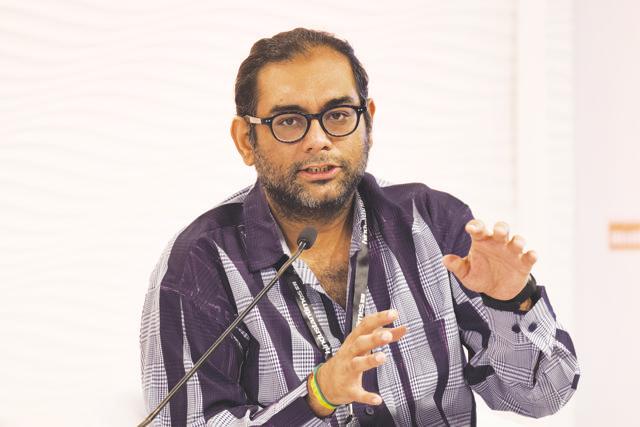
Anyone can cook Indian food and the best Indian chefs are encouraging non-Indians to work in their kitchens.
Manish Mehrotra has Brits in his kitchen at the London Indian Accent. Many Indian restaurants in the US also have Americans in their kitchens. And in the UK, such restaurants as Kricket do very good Indian food though there is hardly a brown face at the range.
I think we have to accept a great cuisine welcomes chefs of all nationalities. Just look at Gaggan Anand’s kitchen. Chefs from all over the world vie to get a job. He chooses the best among them, never bothering to check what passport they hold. It works for Gaggan. So it should work for everyone.
Because, just as we can master foreign cuisines we should allow others to master our own.
From HT Brunch, March 24, 2019



